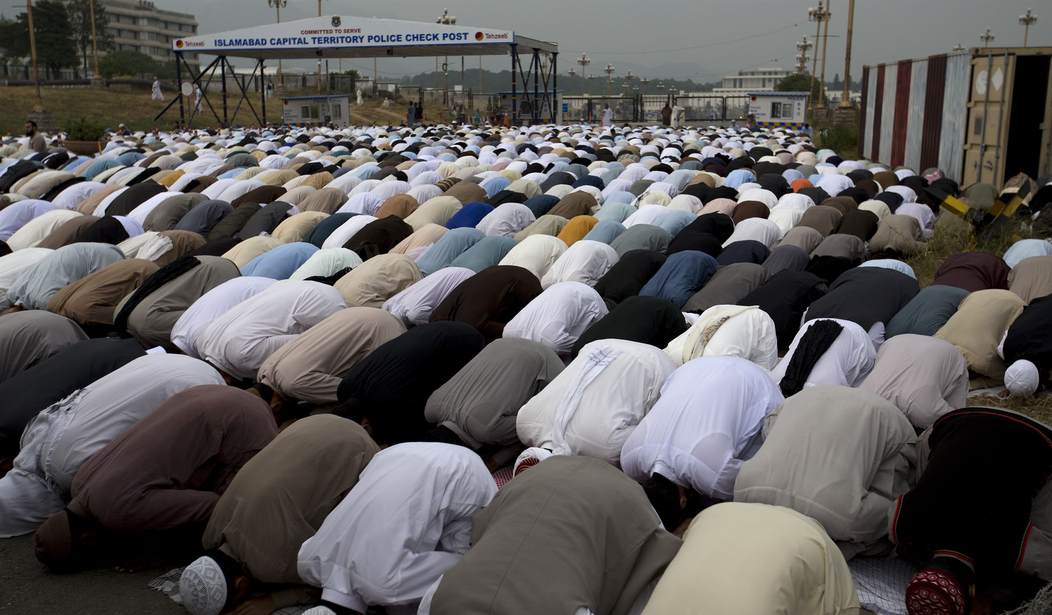Has the true Islam been lost? And is its recovery what both the West and the Islamic world really need?
In a fascinating and thoughtful recent article, the Muslim intellectual Hussein Aboubakr Mansour argues that both jihadis and foes of jihad are not actually dealing with Islam as such, but with a hollowed-out shell of the real thing. He writes: “The Arab weeps at the mosque for the ‘fall’ of Islam—though he would not recognize it if it stood before him. The Westerner panics over the ‘rise’ of Islam—though what rises is not a religion, but a people broken by the absence of one.”
In an article entitled “Islam: The Bane of Our Civilization” at his Subtack, “The Abrahamic Metacritique,” Mansour writes: “Islam today is not feared because it is strong, nor mourned because it is sacred. It is feared because it is present without form, and mourned because it is named without substance. The Islamist raises his fist in its name, while knowing nothing of its faith. The post-Christian European recoils from its sound, while having long abandoned his own.”
In a more sophisticated guise, this is a variant of the old “Islam has been hijacked by a tiny minority of extremists” canard, but Mansour is not arguing, at least not directly, that it is actually a religion of peace.
Mansour instead maintains that properly understood, “jihad was a juridically bounded, state-sanctioned act—not an individual moral impulse, not a populist uprising, and certainly not a private license for violence. It belonged to the sovereign authority of the legitimate Muslim polity.” This is a bit out of focus with his conclusion, in which he states that Islam must return “not to reclaim the world, but to reorder the soul.”
But didn’t the sovereign authority of the legitimate Muslim polity try to “reclaim the world”?
Mansour’s analysis falters on the actual history of jihad, which, even when state-sponsored and state-sanctioned, was a uniformly brutal, bloody, repressive, and unyielding. There was no reordering of the soul about it. Also, it is not quite accurate to say that “in classical Islamic thought, jihad was a juridically bounded, state-sanctioned act—not an individual moral impulse, not a populist uprising, and certainly not a private license for violence.” The statement is true as far as it goes, but there is a crucial exception that Mansour doesn’t mention.
A 14th-century Shafi’i manual of Islamic law that in 1991 was certified by Al-Azhar as conforming “to the practice and faith of the orthodox Sunni community” defines jihad as “war against non-Muslims,” noting that the word itself “is etymologically derived from the word mujahada, signifying warfare to establish the religion.”
The manual spells out the nature of this warfare in quite specific terms: “the caliph makes war upon Jews, Christians, and Zoroastrians... until they become Muslim or pay the non-Muslim poll tax.” It adds a comment by a Jordanian jurist that corresponds to Muhammad’s instructions to call the unbelievers to Islam before fighting them: the caliph wages this war only “provided that he has first invited [Jews, Christians, and Zoroastrians] to enter Islam in faith and practice, and if they will not, then invited them to enter the social order of Islam by paying the non-Muslim poll tax (jizya)… while remaining in their ancestral religions.” But — and this is the critical point for Mansour — the manual also states that in the absence of a caliph, Muslims must still wage jihad. (see Reliance of the Traveller, p. xx; o9.0; o9.8; o9.6.)
Related: A New Era in the UK: Man Criminally Charged With ‘Harassing’ the Religion of Islam
The distinction here is between offensive jihad and defensive jihad. In classic Islamic law, only the caliph is authorized to declare offensive jihad, but anyone can engage in defensive jihad, and indeed, every Muslim is legally obligated to do so if a Muslim land is attacked. That’s why jihadis today like to publish long lists of grievances against the West — these grievances justify their defensive jihad.
In the final analysis, jihad is now and has always been for 1,400 years a bloody, repressive thing, not a vehicle for personal liberation or the ordering of the soul. Mansour concludes by asserting that “the Islamist must convert to Islam.… He must return not to the caliphate of his fantasies, but to the God who has never left. He must forget the books he quoted to become ‘authentic.’ He must re-learn the Qur'an not as a manifesto, but as mercy. He must weep. Then perhaps—perhaps—Islam can return. Not in triumph, but in truth. Not to reclaim the world, but to reorder the soul. We are not here to revive. We are here to believe.”
Yet it is precisely the jihadi’s claim to Islamic authenticity that makes his call so appealing to many other Muslims. Until that is recognized, understood, and countered honestly, the jihad will continue unabated.










